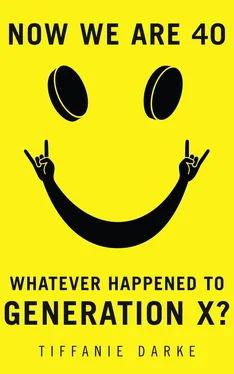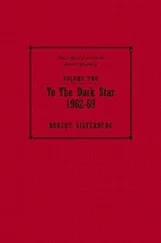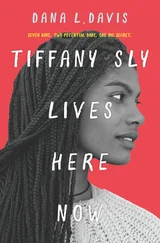In one short summer – let’s take 1997 – Tony Blair was elected, the Prodigy released The Fat of the Land , Oasis dropped Be Here Now and Diana died. That was in just four months, like the arc of a single night: the build, the high, the comedown. We were crowned Cool Britannia, because right then and there, there was nowhere else in the world culturally more exciting.
There is no such roll call of cool that exists for the Noughties (Ellie Goulding, anyone?), or indeed the decade we are currently in, because instant access and transparency now conspire to make culture a pretty homogeneous mass. There are no definitive fashion trends or musical movements as everyone has access to everything everywhere and tribalism has died. Working-class culture is pretty much consigned to the scrapheap as changes to the welfare state mean there is no lifeline on which working-class artists or musicians or writers can survive and thrive. They must instead take a zero hours contract in a call centre. The Nineties, however, were the product of the disenfranchisement our generation felt during the Thatcher years, strong responses to a changing economy and society.
This was reinforced by our methods of communication: in the Nineties we physically went places to meet up, swap hairstyles and be cool, whether it was a club or a record shop or a field or a street or a store. We didn’t connect on chatrooms or on WhatsApp groups. We did it face to face, in places where we met other people who expressed themselves like us, and we exchanged ideas and hung out with each other and felt our rebellion communally. Together, in self-selected communities, we practised large-scale irreverence and cynicism of everything outside of our own group, but together we were fiercely strong and loyal.
Physically showing up to something gave our communities a validity and a value that today’s virtual communities cannot share. Nineties tribes were not just about how you looked – they were also about how you actually behaved, where you went, who you were with, what you did when you got there. You couldn’t tell lies about that, like you can now on social media – there were no filters or hashtags. Communities were something you did together, on a dancefloor or in a pub, sharing a feeling, not alone in a bedroom, staring into a screen all on your own. As a result our communities, whether that be our friendship group or our cultural tribe, were awesomely strong and meaningful to us (while they lasted). We were the new, with the big ideas and the modern outlook and the future.
Yuppies, a job for life, Thatcherism – by the Nineties they were all over; a broken dream. The crash and Black Friday put paid to that, as did the housing market and negative equity and all those redundancies. Money was for losers, with hideous values – experience was what we valued. And government? It gave us the Poll Tax and the Criminal Justice Bill. Instead, we chose the Summer of Love and ecstasy and eco protesters and Swampy. We were Greenpeace and gay culture (not everyone was gay, not yet – it took the Millennials to progress that far, but lots of us were and the rest were our best friends), and we used marketing, PR, television and festivals to take everything that was cool and below the radar and counter-cultural and make it ours. We took it and celebrated it and commoditised it and marketed it and turned it into the mainstream – our mainstream.
Our idea of family was more fluid. Weddings got bigger and bigger as getting married became less about commitment and more about making a social statement and throwing a party. Sex and sexuality loosened, Europe opened up and cheap travel blossomed – no one batted an eyelid at a weekend in Prague, a night in Paris or the NY-LON (New York–London) commute. As the Nineties wore on, our liberal values became common currency. We were changing the world by the day and fashioning it in our own image.
London began, like a gravitational field, to attract everything from around it and pull it in as it accelerated into the future. Wealth creation was moving into the capital and the cultural benefits we enjoyed from Manchester, Bristol, Stoke, Glasgow, Sheffield, Cardiff and more, were hoovered up. As Alex James, the bassist from Blur, says, ‘Although Britpop made us cringe and Cool Britannia made us want to self-harm, we were just so lucky to live in this tiny country with such a huge city in it. For the whole of my adult life, London has been the engine driving everything. At the beginning of the Nineties I arrived in London for my first term at Goldsmiths College. I’m getting out of my parents’ car with a guitar and Graham Coxon [also a member of Blur] is getting out of his parents’ car with a guitar and that was it – fasten your seat belt! It was, and still is, the place where anything can happen and dreams can come true. And they do, nightly.’
The Nineties were the launch pad for Generation X and we came out of it thinking we were pretty special. But not everything that happened turned out to be so good, and there were consequences that we are only just now beginning to realise. I’m 44, I surfed the media circus through my own career until, in 2002, I landed at the Sunday Times Style magazine where, as editor, I tracked the lifestyles of our generation for the next twelve years. Constantly on the lookout for a fresh trend, I was always baffled that it was our age group that continued to define the culture. I had grown up with The Face and Arena , two great channels to cool that did not survive the arrival of magazines like my own.
It was becoming increasingly difficult to find something unknown, or below the radar, as our generation was busy defining everything and selling it back to everyone. We quite categorically refused to make way for those coming up behind us, by giving them nothing to rebel against. The kiss of death, the goodbye to cool was if your mum thought it was good. Rock ’n’ roll, punk, gender bender, acid house and grunge were not liked by parents at all, which conferred on them instant cool. But as eternal Peter Pans, Generation X-ers have never found anything the kids have done distasteful. We share clothes now with our daughters, get breast jobs done together, even get matching tattoos. What’s the glamour in doing a line of cocaine if your dad does it? So the generation below have had to become dull, they have had no choice. They drink less, have less sex, go out less. The best they have come up with is ‘normcore’.
So are we, finally, in our forties, past it now? As Millennials and tech power us even faster into the future, are we going to get left behind? Many of us are embracing it, plenty of us feel paranoid about it, and some of us are being total dicks about it. One technology executive recently wrote: ‘Millennial is a nice stamp that marketers use, but it’s not necessarily about age. It’s more about looking at the things you have an affinity with, regardless of age. I’m 47, but I class myself as a Millennial because I have Millennial tendencies. I’m a lot more active on social media than my peers, for instance.’
God forbid we should be the sad dad trying to breakdance with the kids, but then how do we make sure our experience and the lessons we have learned meld productively with the passion, energy and excitement of the new youth? Millennials are not going to be able to pay us the sorts of pensions we are currently paying out to Boomers, so if that’s the case, how are we going to find the roles in society where we can work side by side and really benefit each other? How can we ensure we are not ‘bedblocking the best jobs’ (as one headline had it recently) but instead creating opportunities for all, enjoying what everyone has to offer and finding real, meaningful roles for ourselves, our parents and our youngers? What can we teach Millennials from our experiences about balancing work, life and family, job satisfaction, social cohesion, emotional stamina, physical fitness and social values?
Читать дальше












